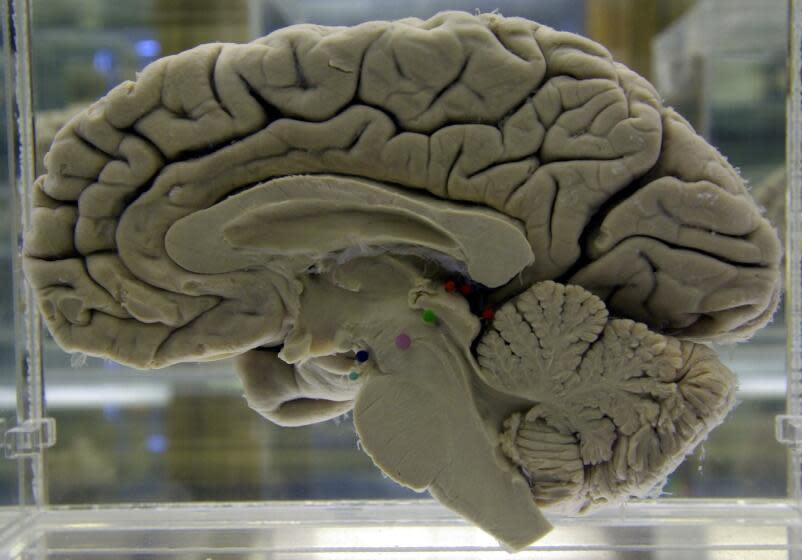Letters to the Editor: Do humans lack free will? We have will, it just isn't free

To the editor: Neurobiologist Robert Sapolsky has two theses. The first is that if one does not posit a supernatural human soul that thinks and causes actions independently of brain function, then the conclusion is inescapable that free will is an illusion. Human thinking and actions are determined by chemical and neuronal interactions in our brains.
From this he arrives at the conclusion that it may be unjust to punish people for their actions.
In 2012, after Penn State University assistant football coach Jerry Sandusky was convicted of 45 counts of child sexual abuse, Sapolsky raised the possibility that his lengthy prison sentence was unjust because his crimes were caused by dysfunctional brain activity and were therefore not his fault.
But it is self-evident that if murderers, rapists and child molesters were not held accountable for their behaviors, there would be many more victims of murder, rape and child abuse.
To my mind, the most reasonable synthesis of determinism and personal responsibility is that of 19th century British philosopher John Stuart Mill. He accepted that, in the ultimate analysis, human will is not free.
Yet for the sake of an orderly and safe society, it is necessary to act as if humans do have free will, and to hold people accountable for their actions.
Cyril Barnert, M.D., Los Angeles
The writer is a retired clinical professor of psychiatry at UCLA.
..
To the editor: I decided to write a letter to The Times. Then I decided not to. But it turns out that I was going to all along because the decision was determined without my control, according to Sapolsky.
Philosopher John Martin Fischer, who wrote a Times op-ed article, disagrees.
Maybe the problem with the argument that humans have no free will is the word "free." We have a will, but factors beyond our control influence it.
A computer with artificial intelligence can make its own decisions, but they are made under controlled conditions, much as Sapolsky asserts is the case with human consciousness. When AI becomes more self-taught and autonomous, will we say they have free will? No.
Fischer says it’s our biology that enables our free will. I see truth in both sides. Humans have willfulness, but only to a degree.
Kathy Harty, Sierra Madre
..
To the editor: Sapolsky isn't saying that we shouldn't be punished for our actions. He is explaining years of research that shows our genetic and biological makeup, affected by our life experiences, are the reason we may, for instance, choose to be a cat lady over marriage.
Elizabeth Taylor, Glendale
..
To the editor: I am a retired dentist and have degrees in philosophy and biology. As such, I look for interdisciplinary answers to academic questions such as Sapolsky's take on free will.
For many years I have offered a personal philosophy to console friends and family who were distraught over unfavorable outcomes in life. It provides a unified theory of both sides of the free will controversy.
Simply put, free will exists before a behavioral action takes place. Many variables and possibilities influence it. However, after the fact, it had to happen that way. Different choices exist until the moment of action when all possibilities converge to result in one outcome that is unavoidable.
This theory allows for hope and moral responsibility, but mitigates regret and despair over the consequences of human behavior. I dub it "ex post facto fatalism."
Wayne Maibaum, Danbury, Conn.
..
To the editor: In philosophy professor John Martin Fischer's defense of free will, he presents only one illustration — his decision to write rather than not write. But it is flawed.
What was behind this "decision" to write? If it was free will, Fischer logically would have had to decide to make the decision. And therefore he would have needed to decide to decide to decide, in a chain extending backward to his birth.
This of course is impossible. His decision to write arose spontaneously. It was determined by something other than free will.
Brad Bonhall, Reno, Nev.
This story originally appeared in Los Angeles Times.

